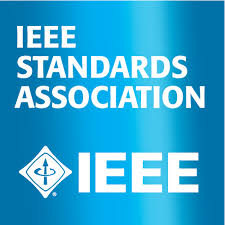
ROBOLAW.ASIA Research
IA, Robotique et Droit
Depuis 2004, le Ministère japonais de l’Économie, du Commerce et de l’Industrie a publié une série de directives sur les robots traitant des parts de marché et des problèmes de sécurité engendrés par la « prochaine génération de Robots ». Il prévoit l’émergence d’une société où coexisterait Humains et Robots d’ici 2030. Cependant, l’entrée des robots dans la vie de tous les jours nécessite un procédé graduel, étape par étape. Ici, à ROBOLAW.ASIA Initiatives, nous croyons que les robots intelligents seront la prochaine technologie révolutionnaire directement après les ordinateurs et internet. Ainsi, nous avons établi ROBOLAW.ASIA Initiatives afin d’étudier les corrélations entre intelligence artificielle (IA) et les textes de Loi. Notre principal objectif est de minimiser les risques provenant des robots à un niveau acceptable.
Un problème émergent pourrait être de savoir si une nouvelle réglementation doit être considéré pour les robots de service. En considérant le système juridique actuel, les robots de service sont apparentés à une propriété ou une « seconde existence ». Ce statut n’est pas suffisant pour s’assurer de la sécurité et des risques moraux encourus par la coexistence des humains et des robots. En d’autres termes, une nouvelle perspective de réglementation doit être établi en considérant les robots de service comme « le troisième existence » Les robots sont encore considérés comme des objets au regard de la loi mais devraient avoir un statut légal spécifique différents des machines conventionnelles. Cependant, la difficulté d’établissement de nouvelles réglementations pour les robots de service est comparable à celle réalisée pour la régulation des voitures à vapeur au 19ème siècle. C’est une « réglementation de l’inconnue ». D’un côté, de telles machines peuvent être la cause de conséquences mortelles pour les êtres humains en l’absence de régulations appropriées. D’un autre côté, il est difficile pour les réglementateurs de suivre en temps réel les progrès rapides en matière de technologies avancées. Par conséquent, il y a une tendance à la surrèglementation, semblable au cas des voitures à vapeur dans le passé.
Pour éviter de répéter les Lois Red Flag à l’ère des robots intelligents, nous pouvons tout d’abord considérer la « dérégulation » en se référant à la zone spéciale « Tokku » RT.Une telle zone spéciale peut aider les régulateurs et les fabricants à identifier de nombreux risques imprévus au cours de la phase finale, avant la mise sur le marché de tels robots. Originaire du Japon, la zone spéciale RT est seulement âgée de 10 ans, mais de nombreuses zones spéciales ont déjà été établies à Fukuoka, Osaka, Gifu, Kanagawa et Tsukuba. Au fur et à mesure que le développement de la robotique et de son acceptation par la société s’élargissent, l’importance des zones spéciales, véritable interface entre les robots et la société, se fera plus apparente.
En outre, nous devons être conscients de l’importance du droit public et de la réglementation. Bien que ceux-ci ne font mention ni des droits des robots, ni de leur reconnaissance en tant qu’entités juridiques par la Constitution, des réglementations publiques au regard de la conception, la fabrication, la vente et l’utilisation de la robotique avancée existent. Une possibilité pourrait être de développer la loi sur la « gouvernance de la sécurité des robots » (Robot Safety Governance Act), qui est l’extension des réglementations actuelles sur la protection des Humains contre les machines. Ces normes techniques mentionnées en bas de la « Loi Robot » assureront la sécurité de la nouvelle coexistence Humain-Robot.
Enfin l’éthique des robots et la réglementation juridique ne devraient pas toujours être en parallèles. Du point de vue de la règlementation, une loi sur les robots est à l’intersection entre l’éthique du robot et la robotique. Nous pourrions ne pas avoir besoin de lois Red Flag pour les robots Pepper, cependant, cela dépend des standards moraux (points de vue et actions) auxquels nous sommes confrontés lorsqu’il s’agit de réglementer l’inconnue.
Contribution:
01. Yueh-Hsuan Weng (2017) Towards Integrated Governance for Intelligent Robots: A Focus on Social System Design, in Proceedings of the 20th International Legal Informatics Symposium (IRIS 2017), Universität Salzburg, Austria, Page 191-198, Austrian Computer Society, February 2017, ISBN: 978-3-903035-15-7 [LINK]
02. Yueh-Hsuan Weng (2017) Case Study: Bad Actors and Service Robots, FHI-CESR-CFI Workshop on Bad Actors and Artificial Intelligence, 14:45-15:00, Littlegate House, Oxford, February 19th-20th 2017 [LINK]
03. Yueh-Hsuan Weng (2016) Robot Law 1.0: On Social System Design for Artificial Intelligence, 13:00-14:00, Small Moot Court, room 723, 7/F, Cheng Yu Tung Tower, Faculty of Law, The University of Hong Kong, January 16th 2017 [LINK]
04. Yueh-Hsuan Weng (2016) Regulation of Unknown: A Lesson from Japan’s Public Law and Policy for Next-Generation Robots, 1st Annual Conference of the Center for Law and Internet (CLI) Session: Ethics and technology, 15:20-16:30, West-Indisch Huis Amsterdam, November 17th 2016 [LINK]
05. Mady Delvaux-Stehres and Yueh-Hsuan Weng (2016) A European perspective on robot law: Interview with Mady Delvaux-Stehres, TECH and LAW Center & Robohub [LINK]
06. Yueh-Hsuan Weng (2016) Regulation of Unknown: A Lesson from Japan’s Public Law and Policy for Next-Generation Robots, 12:30-13:30, Room 623, 6/F, Cheng Yu Tung Tower, Faculty of Law, The University of Hong Kong, January 28th 2016 [LINK]
07. Christof Heyns, Gurvinder S. Virk, Yueh-Hsuan Weng (2015) An Exclusive Interview with UN and ISO experts in Robots and Regulation, TECH and LAW Center [LINK]
08. Yueh-Hsuan Weng (2015) O Direito para Robôs: A Regulação do Direito Robótico no Direito Público do Japão, 10:30-12:30, Sala de Vídeoconferência - 3° andar, UFPR - Universidade Federal do Paraná, Curitiba, November 20th 2015 [LINK]
09. Yueh-Hsuan Weng (2015) Regulation of Unknown: Does the Humanoid Robot “PEPPER” need Red Flag Laws?, TECH and LAW Center [LINK]
10. Yueh-Hsuan Weng (2015) Japan’s Robot Policy and the Special Zone for Regulating Next Generation Robots, TECH and LAW Center [LINK]
Figure 1. Risk Monitoring Mechanism: For short term consideration, a passive measurement to monitor the Open-Texture Risk.
Figure 2. Risk Control Mechanism: For Long term consideration, using active measurement to absorb the Open-Texture Risk.
11. Yueh-Hsuan Weng (2015) Japanese Public Policy for Robots and Regulation: An Example of "Tokku" Special Zone, 11:00-13:00, Sala Mansarda, Villa Schifanoia, European University Institute, Florence, April 28th 2015 [LINK]
12. Yueh-Hsuan Weng (2015) Robots and Society: On the Intersection of Special Zone, Robots, and the Law, 10:30-11:30, Via dei Barucci n° 20, ITTIG-CNR, Florence, March 26th 2015 [LINK]
13. Yueh-Hsuan Weng, Yusuke Sugahara, Kenji Hashimoto, Atsuo Takanishi (2015) Intersection of “Tokku” Special Zone, Robots, and the Law: A Case Study on Legal Impacts to Humanoid Robots, International Journal of Social Robotics, Vol. 7, No. 5, Page 841-857, Springer Netherlandsa [LINK]
14. Yueh-Hsuan Weng, Gurvinder S. Virk, Shuping Yang (2015) The Safety for Human-Robot Co-Existing: On New ISO 13482 Safety Standard for Service Robots, Internet Law Review, Vol. 17, Page 229-244, Peking University Press [LINK]
15. Yueh-Hsuan Weng (2014) Introduction to Applications and Challenges of Emerging Technologies, Master Course: The Laws of Cyberspace, 10:00-12:00, Room 121, TSMC Building, National Tsing Hua University, Hsinchu, December 11th 2014
16. Yueh-Hsuan Weng, Dominic Hillenbrand (2014) The Intelligentization of Automobiles: Smart-Cars, Robo-Cars and their Safety Governance, Journal of Science, Technology and Law (STL), No.4, General Issue 110, Page 632-646, 2014 [LINK]
17. Yueh-Hsuan Weng (2014) The Study of Safety Governance for Service Robots: On Open-Texture Risk, Ph.D. Dissertation, Peking University Law School, Beijing, May, 2014 [LINK]
18. Yueh-Hsuan Weng (2014) A Review on Military Robots and Warfare, PKU Internet Law Watch, Vol. 10, No. 4
19. Yueh-Hsuan Weng (2014) The Robot - Technology, Ethics and Law, PKU Internet Law Watch, Vol. 10, No. 3
20. Yueh-Hsuan Weng (2014) Robots - A Historical Review, PKU Internet Law Watch, Vol. 10, No. 2
21. Yueh-Hsuan Weng (2013) Special Interview on “Robot Law in Europe” - with Prof. Dr. Eric Hilgendorf, ROBOLAW.ASIA Initiative [LINK]
22. Yueh-Hsuan Weng (2013) Special Interview on “Law and Drone Warfare” - with Prof. Dr. Christof Heyns
, ROBOLAW.ASIA Initiative [LINK]
23. Yueh-Hsuan Weng, Sophie T.H. Zhao (2012) The Legal Challenges of Networked Robotics: From the Safety Intelligence Perspective, M. Palmirani et al. (Eds.), Lecture Notes in Computer Science(LNCS): AI Approaches to the Complexity of Legal Systems, Vol. 7639, Page 61-72, Springer Berlin Heidelberg [LINK]
24. Yueh-Hsuan Weng (2012-2014) Supporting External Network, EU FP7 Project: ROBOLAW, Scuola Superiore Sant’Anna, Pisa, Italy, June 2012 - September 2014 [LINK]
25. Yueh-Hsuan Weng (2012) Yahoo! Research Grant, “The Internet of Things and Automation: Legislation and Policy Research”, PKU-Yahoo! Internet Law Center
26. Yueh-Hsuan Weng (2012) (1) The Internet of Things and Automation: Overlapping the Real and Virtual Worlds, PKU Internet Law Watch, Vol. 8, No. 5
27. Yueh-Hsuan Weng (2012) (2) Intelligent Transportation: Addressing the Liability Impact of Automated Systems: with Prof. Dr. Giovanni Sartor and Dr. Giuseppe Contissa, PKU Internet Law Watch, Vol. 8, No. 5
28. Yueh-Hsuan Weng (2012) (4) Social Robots: Robot Companions for Citizens: with Prof. Dr. Paolo Dario, PKU Internet Law Watch, Vol. 8, No. 5
29. Yueh-Hsuan Weng (2012) Law & Networked Robotics: Some legal Issues on the Internet of Things, Aula 6, 12:00-15:00, SSSA Seminar, Scuola Superiore Sant’Anna, Pisa, June 6th 2012
30. Yueh-Hsuan Weng, Sophie T.H. Zhao (2011) The Legal Challenges of Networked Robotics: From the Safety Intelligence Perspective, XXV. IVR World Congress on Philosophy of Law and Social Philosophy Special Workshop on AICOL, (16:00~16:20) Room HZ 8, Building N.4, Goethe-Universität Frankfurt, Frankfurt am Main, 15th August 2011 [LINK]
31. Yueh-Hsuan Weng (2011) Networked Robots: A Brief Look at Its Possible Legal Implications, IEEE International Conference on Robotics and Automation (IEEE ICRA’11) Workshop on Roboethics, (16:30~17:00) Room 5B, SHICC, Shanghai, 13th May 2011 [PDF]
32. Yueh-Hsuan Weng (2011) The Open-Texture Risk in the Human-Robot Co-Existence Society: A Review on “Open Robotics”, Internet Law Review, Vol. 13, Peking University Press [LINK]
33. Yueh-Hsuan Weng (2009) Toward The Human-Robot Co-Existence Society: On Legislative Consortium for Social Robotics, IEEE International Conference on Robotics and Automation (IEEE ICRA’09) Workshop on Legal and Safety Issues Related to Autonomous Networked Robots Operating in Urban Environments, (10:40~11:05) Room 404, Kobe International Convention Center, Kobe, 13th May 2009 [LINK]
34. Yueh-Hsuan Weng, Chien-Hsun Chen and Cheun-Tsai Sun (2007) The Legal Crisis of Next Generation Robots: On Safety Intelligence, Paper presented on The Eleventh International Conference on Artificial Intelligence and Law (ICAIL'07). Stanford Law School, Palo Alto, California, USA [ Acceptance Rate: 26% ] [PDF]





